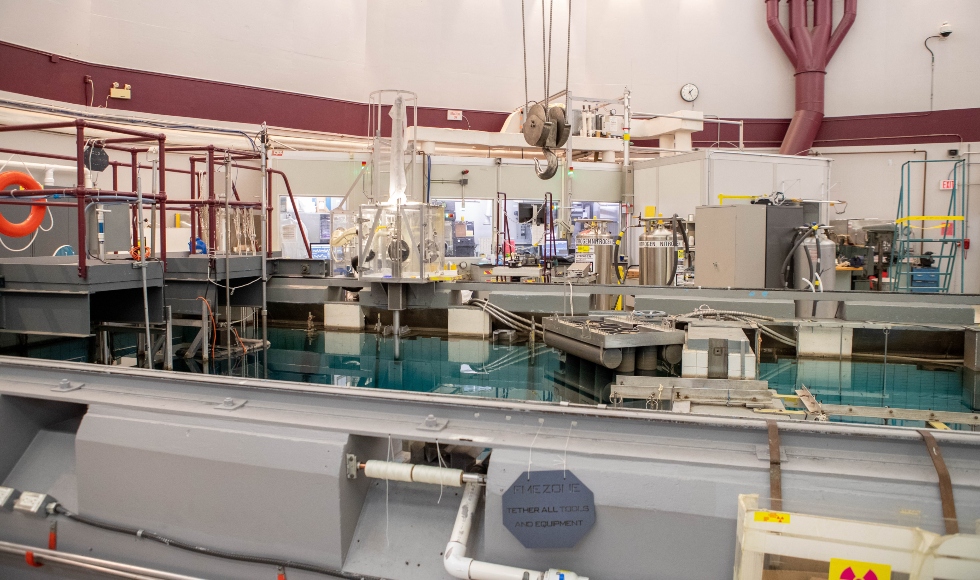McMaster Nuclear Reactor provides critical medical isotopes and other essential work amid pandemic

Photo by Georgia Kirkos
BY Michelle Donovan
April 14, 2020
Amid the COVID-19 pandemic which has shaken the world and changed daily life, the McMaster Nuclear Reactor (MNR) continues to produce much-needed and rare medical isotopes used to treat prostate and other forms of cancers, while providing other services critical to health care, the nuclear industry and the economy.
As a designated essential service, the reactor and health physics teams have mobilized quickly to overcome substantial challenges, which have included logistical problems associated with shipping Iodine-125 and Holmium-166 isotopes used for cancer treatments across the globe.
“While our health care system needs to be laser focused on the COVID-19 pandemic right now, other patients in the system rely on medical isotopes in their battles with cancer,” says Chris Heysel, director of nuclear operations at MNR. “The staff responsible for producing medical isotopes here at McMaster University are essential to these patients and I am really proud to work with such a dedicated group of people.”
Currently, the reactor is the world’s only supplier of I-125, and one of only a handful of suppliers of Ho-166, both of which require specialized facilities and highly qualified staff — who now must perform their work within the limitations of social distancing and minimal interaction.
“Our technicians and operators are working diligently under very difficult circumstances,” says Heysel. “They are stepping up to ensure everyone is properly protected, supplies are organized, and schedules are coordinated to accommodate staff and their families.”
Iodine-125 is also used in radioimmunoassays for vaccine and diagnostic research with potential applications for COVID-19. Several North American and European companies which produce these types of kits are scrambling for iodine.
“Cancer patients still require treatment and we need to ensure that happens,” says Karin Stephenson, manager of commercial operations at the reactor.
The MNR also continues to provide essential analytical services to the nuclear industry supporting the safe generation of electricity, and is running tests on jet engine turbine blades, using neutrons from the reactor to probe the interior of the part to check for flaws.
“Certainly we will continue to be needed throughout this pandemic as we help to support local businesses and the economy,” says Heysel. “Cancer treatments can be rescheduled and delayed, but they cannot be cancelled.”
For more information on the McMaster Nuclear Reactor, please visit: https://nuclear.mcmaster.ca/


